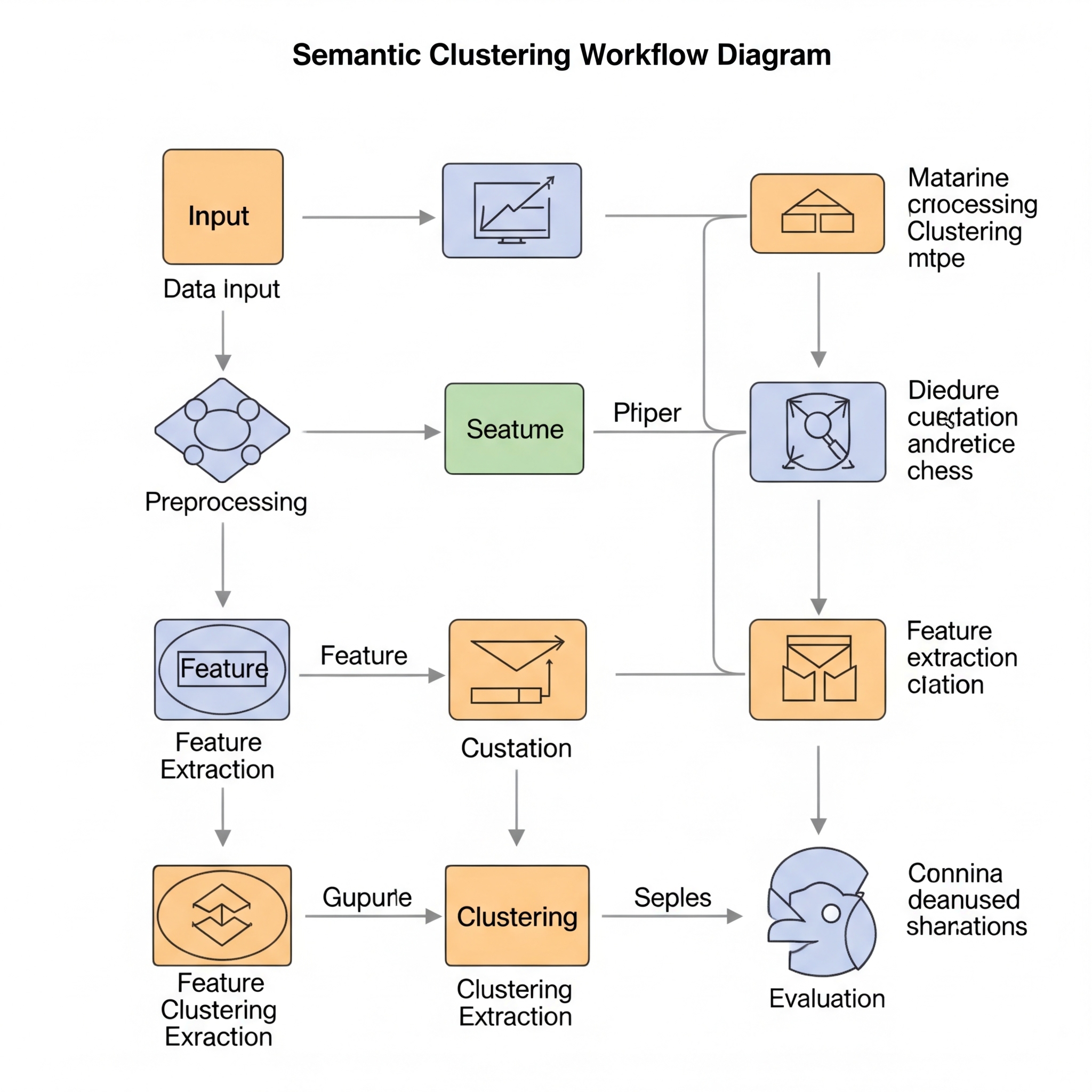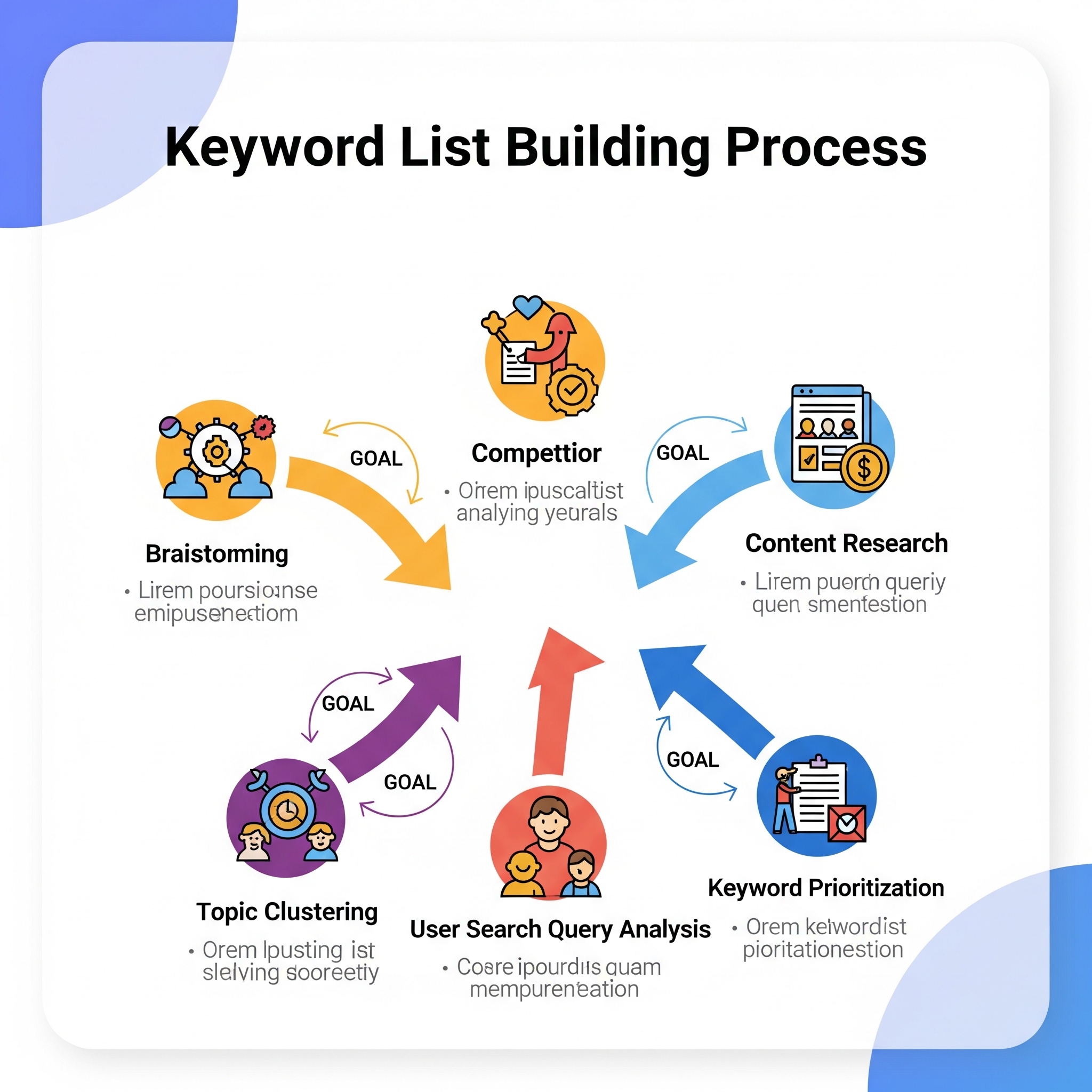2025-6-7
In the competitive world of digital marketing, keyword clustering stands out as an essential strategy for enhancing SEO performance. By grouping keywords systematically, businesses can improve their search engine rankings, streamline their content strategies, and ultimately drive more organic traffic to their websites.
Semantic clustering focuses on grouping keywords based on meanings and intent instead of mere lexical resemblance. This approach leverages natural language processing (NLP) techniques for a deeper understanding of contextual relationships among keywords. Its benefits include a more nuanced insight into user intent, allowing for the creation of content that truly resonates with target audiences.

SERP clustering involves organizing keywords based on their performance and appearance on search engine results pages. This method emphasizes imitation of natural search behaviors and identifies keyword groupings that frequently appear together in queries. This approach ensures alignment with search engine algorithms and enhances the likelihood of visibility and relevance.
Keyword Insights is a powerful tool that combines artificial intelligence with data analysis to create actionable keyword clusters. Its robust algorithms help businesses to automate the clustering process, saving time and improving strategic efficiency. With Keyword Insights, marketers can tap into extensive keyword databases and develop well-informed content strategies.
Ahrefs offers a comprehensive keyword clustering tool that aids in analyzing search dynamics and competition levels. Its features include tracking keyword rankings and refining content strategies based on performance metrics. Ahrefs also assists in identifying gaps in existing content strategies, encouraging more targeted SEO improvements.
Google Keyword Planner provides insights straight from the source, facilitating an understanding of keyword volumes, competition, and clustering potential. Its user-friendly interface is especially valuable for marketers new to SEO keyword strategies. Additionally, Google Keyword Planner offers free access to certain features, making it invaluable for beginners.
SEMrush excels with its capability to cluster keywords based on competitor analysis and market trends. The tool's deep dive into market data helps marketers uncover both popular and niche keywords, enabling a balanced approach to keyword-targeted strategies. SEMrush's analytical depth aids in a more precise, impactful SEO plan.
For businesses looking to enhance their digital presence, implementing an effective keyword clustering strategy is crucial. The first step involves building a comprehensive keyword list by conducting thorough research with a keen understanding of user intent. Using powerful tools like Keyword Insights and Ahrefs, marketers can compile a list that targets diverse keywords, encompassing both short-tail and long-tail options to maximize reach and specificity.
When building a keyword list, it's essential to focus on both broad and niche terms to capture a wide audience range while meeting specific user needs. This process involves understanding search volumes and keyword difficulty, ensuring that both high-competition and low-competition keywords are included. Tools like Google Keyword Planner give insights into these metrics, allowing marketers to make data-driven decisions that align with SEO objectives.

Once a keyword list is established, the next step in the strategy is to categorize these keywords into thematic clusters. This involves identifying the common intents and categorizations based on user search behavior. SEO tools like SEMrush offer valuable insights into how keywords can be grouped based on search engine behavior and user trends, facilitating more targeted and effective content strategies.
Strategic content planning is pivotal in keyword clustering. By leveraging well-categorized keywords, marketers can create comprehensive content pillars that not only enhance SEO but also provide value to users by addressing their specific needs and queries. This part of the strategy focuses on crafting high-quality content that seamlessly integrates clustered keywords while maintaining readability and relevance.
SEO and keyword clustering is an ongoing process that requires continuous monitoring and updating. Businesses should routinely analyze keyword performance using tools like Ahrefs and Google Search Console to track rankings and make necessary adjustments. This dynamic approach ensures that strategies remain effective amid shifts in search behaviors and trends, ultimately maintaining competitive SEO performance.
The future of keyword clustering lies in the evolution of artificial intelligence and machine learning capabilities. As these technologies advance, they promise more sophisticated tools for analyzing user behavior and automating the keyword categorization process. Future SEO strategies will likely integrate AI-driven insights, enabling more personalized and adaptive SEO campaigns that precisely meet user needs at an individual level.
As AI tools become more refined, they offer unprecedented potential to automate keyword analysis more efficiently and achieve more granular insights into user intent. Machine learning algorithms can discern complex patterns in user searches, enabling more dynamic and responsive SEO strategies that adapt to real-time data changes.
With the rise of voice-activated devices and virtual assistants, optimizing for voice search is becoming increasingly important for SEO. This shift demands a focus on more conversational keyword phrases and the importance of understanding user intent in different contexts. As voice technology continues to grow, keyword clustering strategies will need to adapt, focusing on natural language processing to improve voice search visibility.
Keyword clustering is a foundational pillar of modern SEO, empowering businesses to align their content with user intent and search engine algorithms. By leveraging semantic and SERP clustering techniques, supported by tools like Keyword Insights, Ahrefs, SEMrush, and Google Keyword Planner, marketers can build targeted strategies that boost visibility and drive qualified traffic. As AI and voice search technologies continue to reshape digital behaviors, evolving your keyword clustering approach will be key to maintaining relevance and maximizing performance. Ultimately, investing in a structured, data-driven clustering strategy ensures sustained SEO success and a stronger digital presence.